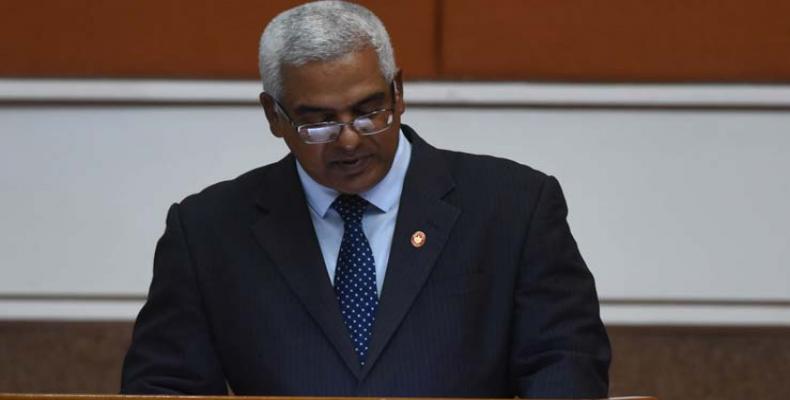Havana, Oct 9 (RHC) The Minister of Justice of Cuba, Oscar Silvera, affirmed Wednesday in Havana that in the next two sessions of the National Assembly of People's Power (ANPP), new laws will be approved to comply with the provisions of the recently ratified Constitution.
"This is one of the most important challenges for the institutional and legal order of the country," he told the plenary session of the Parliament.
He indicated that the Ministry of Justice is in the final stage of defining these legislations or decree-laws, their contents, and the schedule for their consideration by Parliament.
"They will define three sets of laws: one for the ordering of the socio-economic and political system, another for the application of the Constitution and the third for the functioning of the institutions," Silvera explained.
He advanced that in the Parliament’s ordinary session in December, the legislation related to the functioning of the National Assembly, the State Council, the Citizen Law, the bill of the Foreign Service, and the Legislative Plan must be approved.
"The new Family Code, the Penal Code, the Personal Data Protection Laws, the Courts, the Public Prosecutor's Office, Territorial Planning Law, Copyright Law, Cultural Heritage Law, Education Law, Criminal Procedure Law, and Tourism Law, among others, are being drafted," Silvera said.
With the presence of President Miguel Diaz-Canel, the Cuban Parliament met Wednesday on the eve of the electoral day, October 10, when the highest officials of the Cuban state will be elected.
The deputies will elect the president and vice-president of the Republic, the presidency of the National Assembly of People's Power, and the members of the State Council, a collegiate entity that has essential functions between sessions of the Cuban Parliament.
The Constitution promulgated in April mandates these elections, and they take after the approval in July of the Electoral Law, and the establishment of the National Electoral Council and the National Candidatures Commission.


